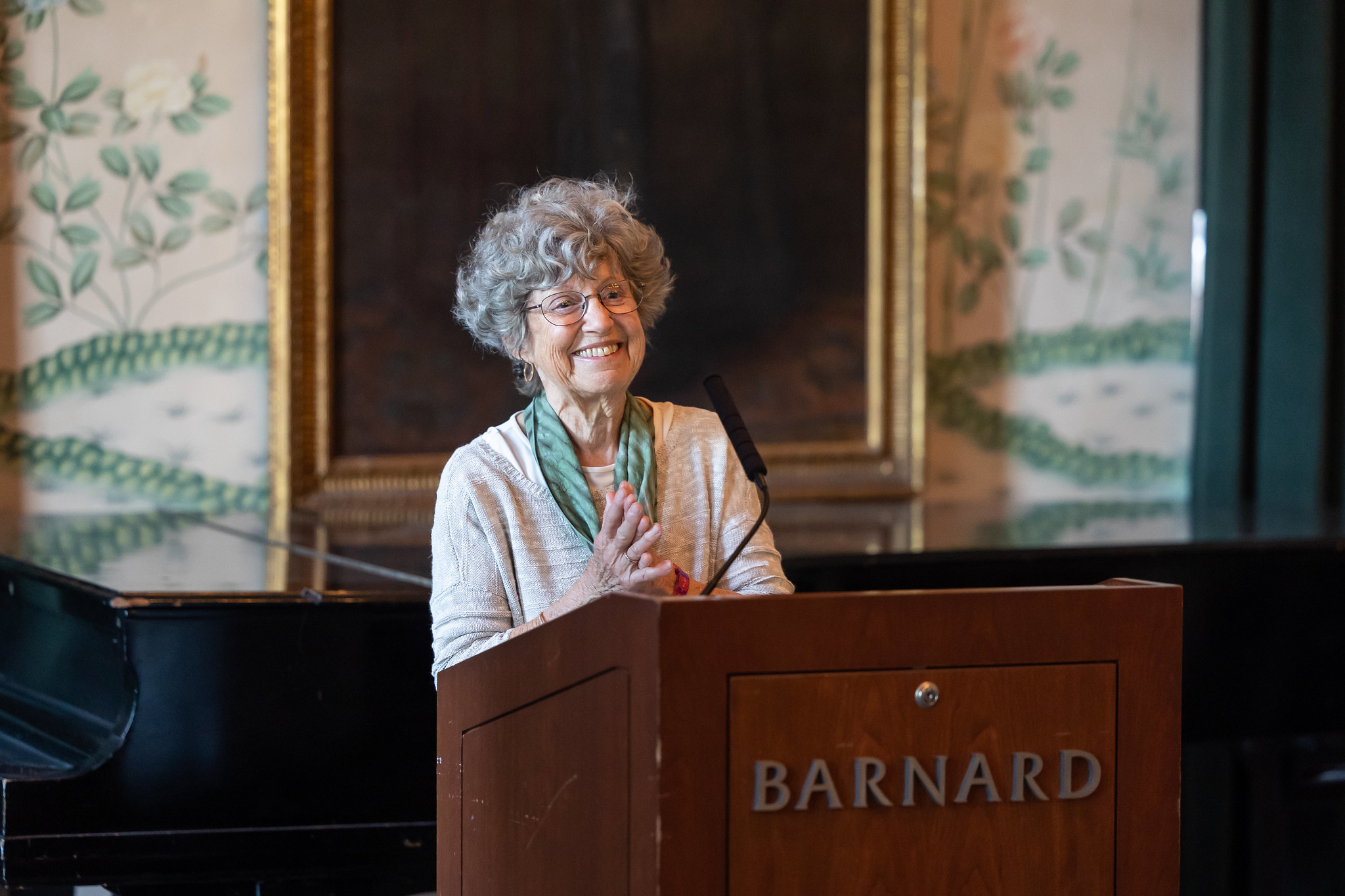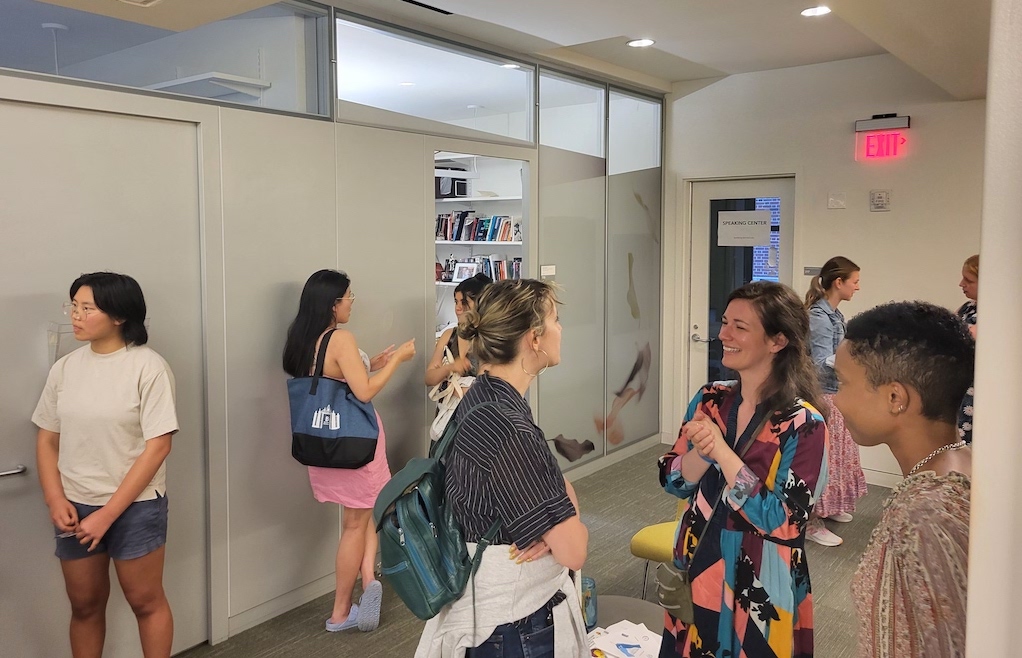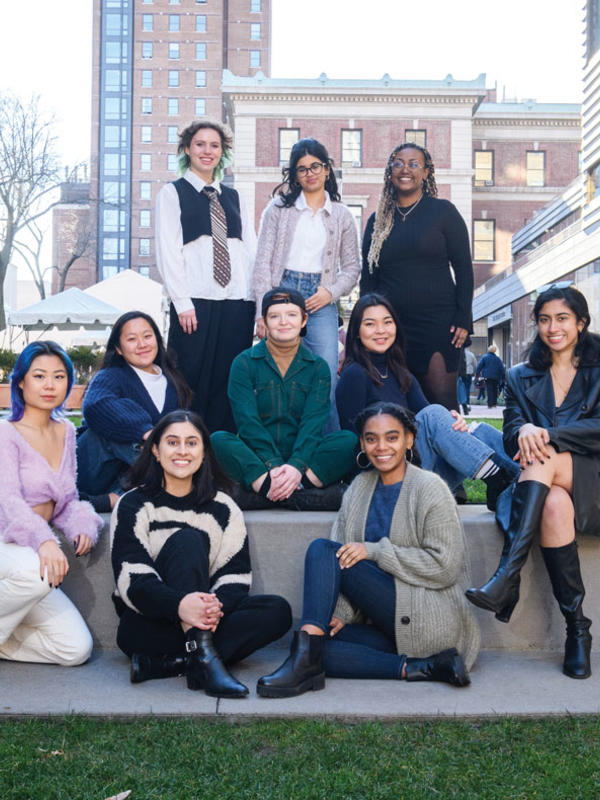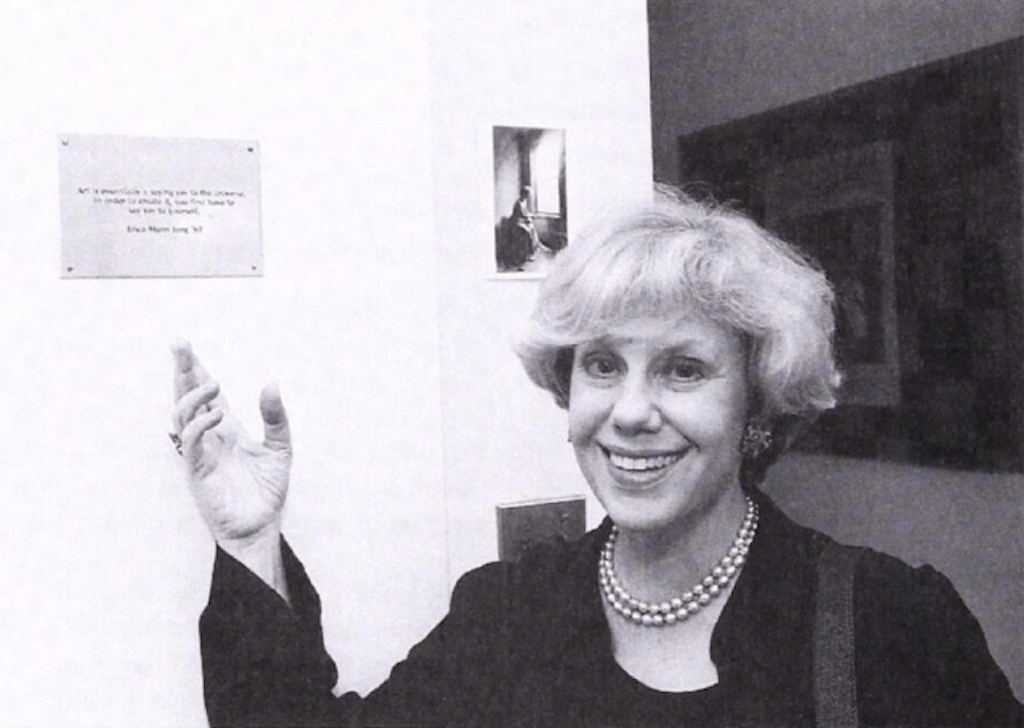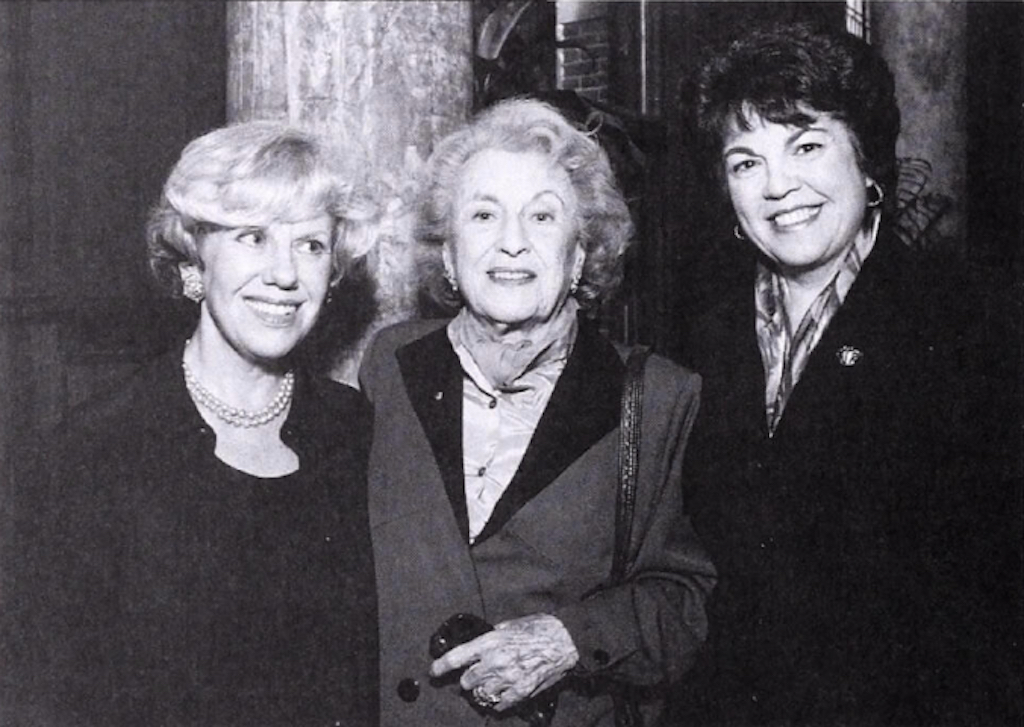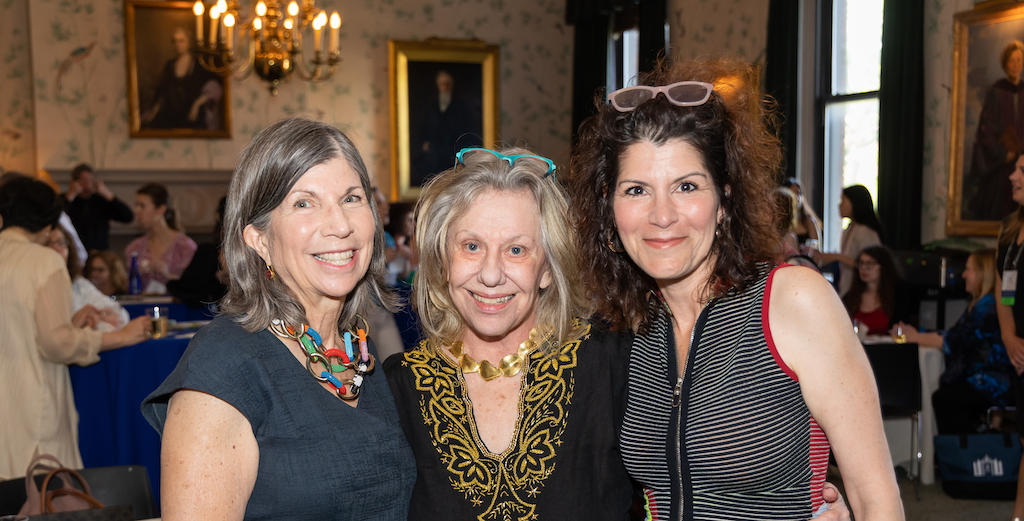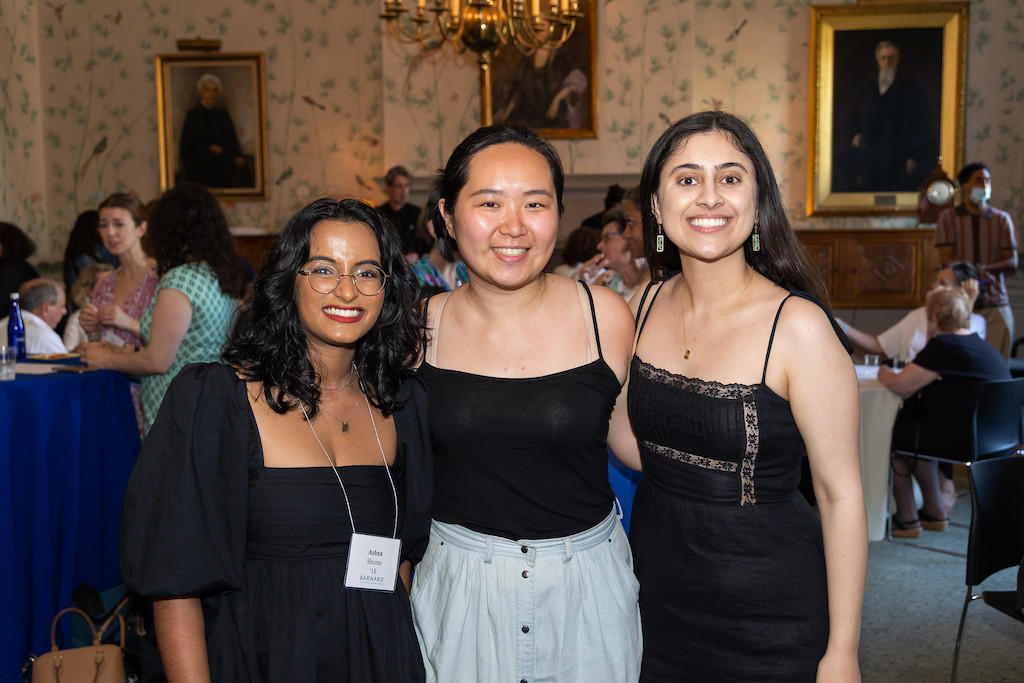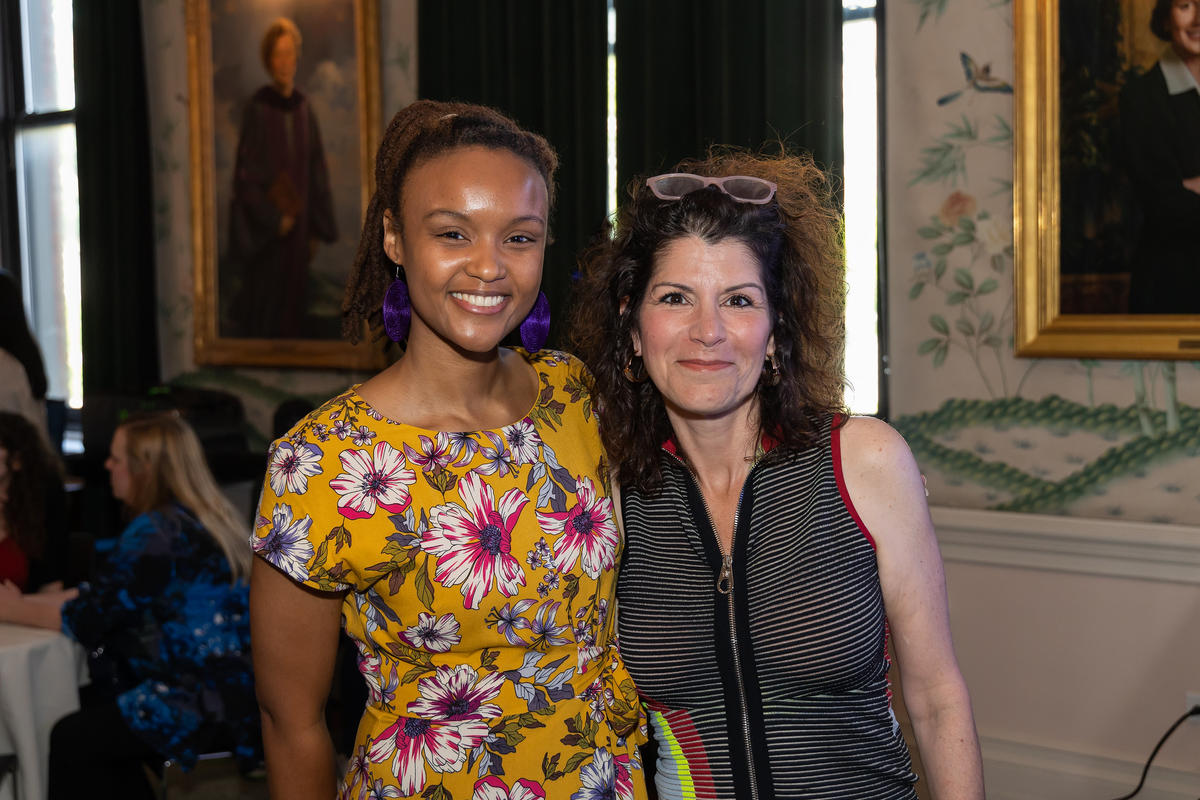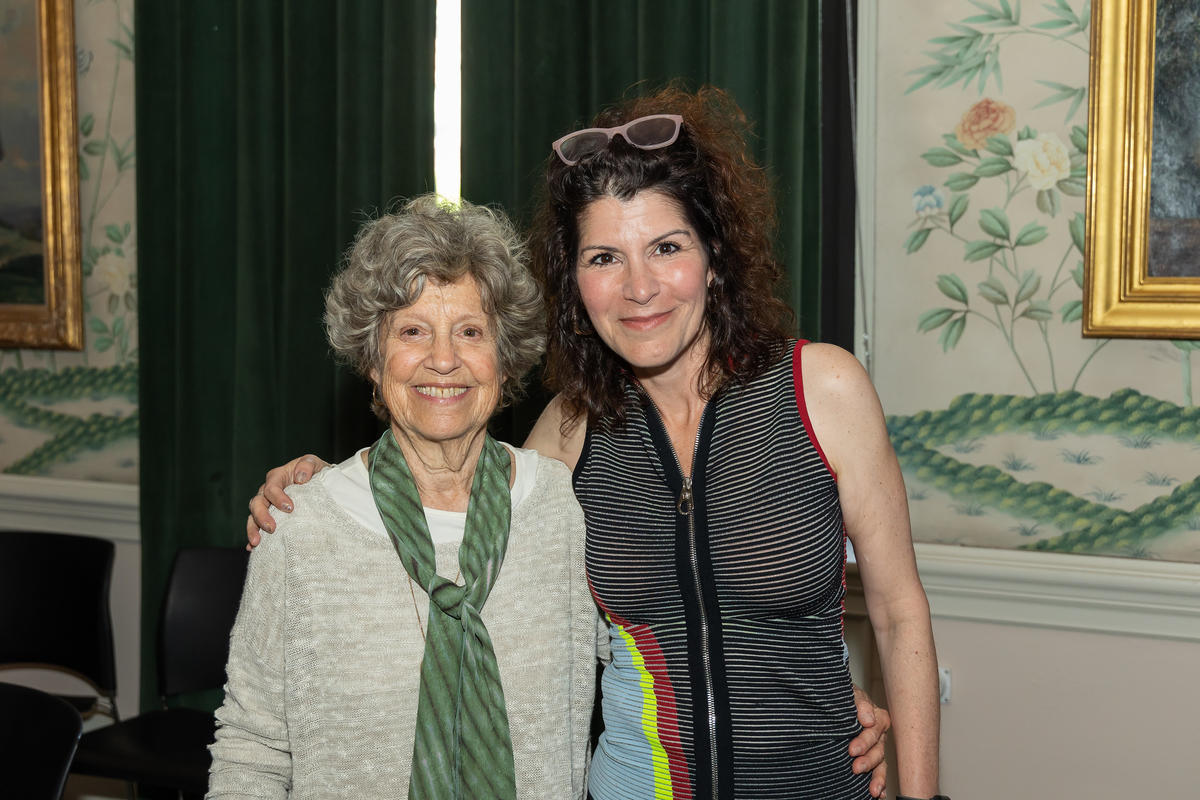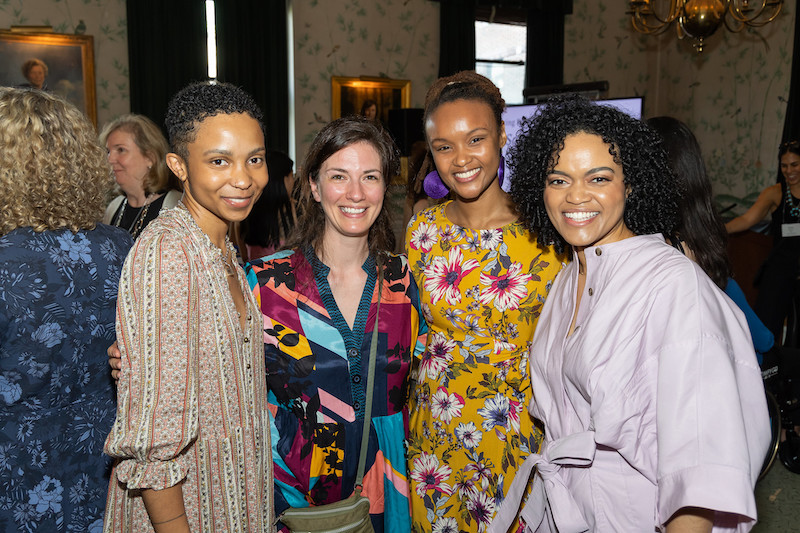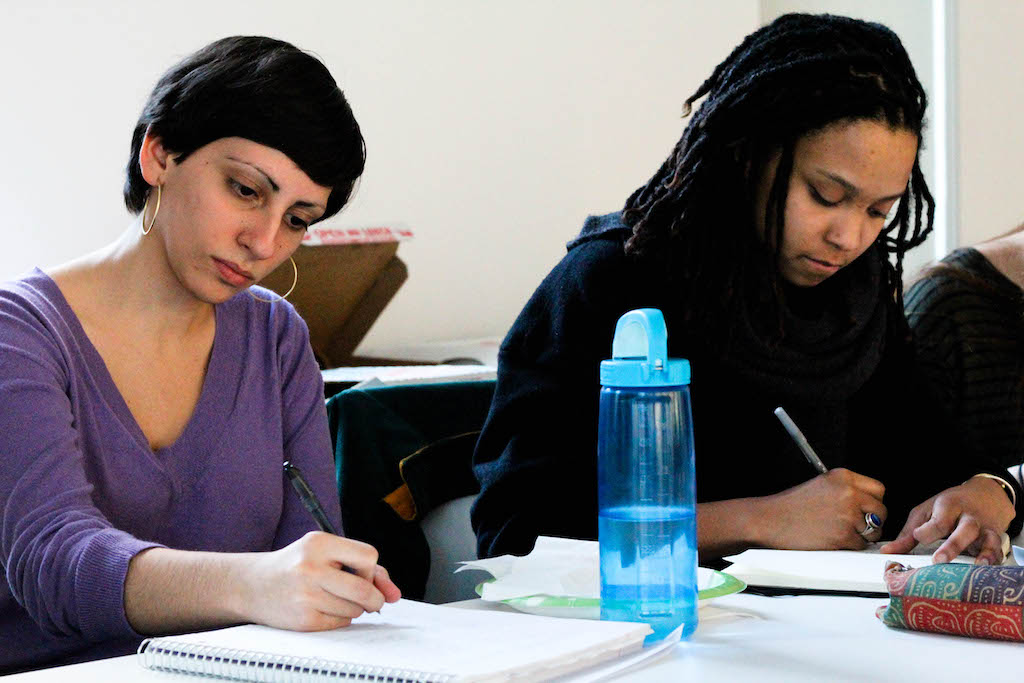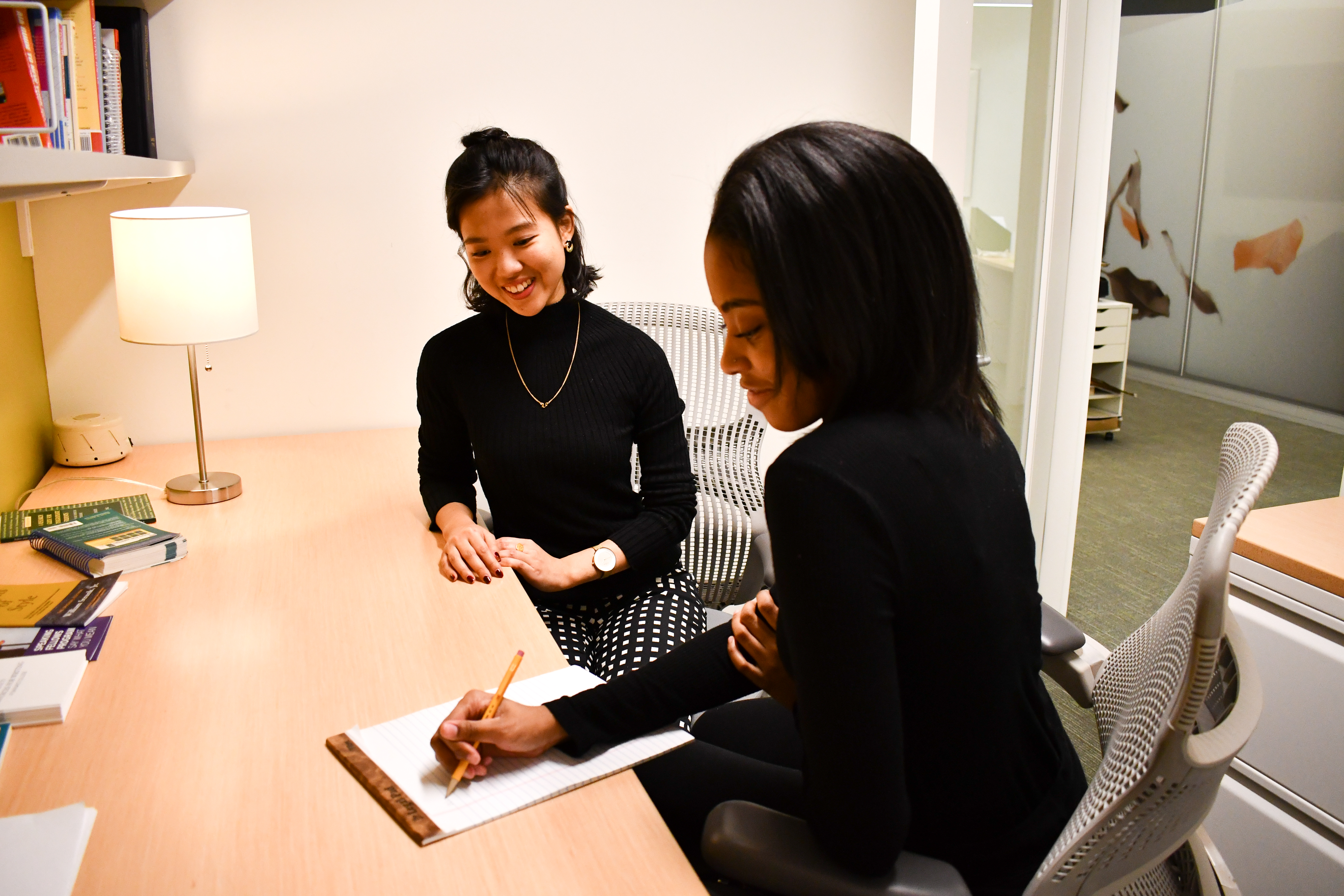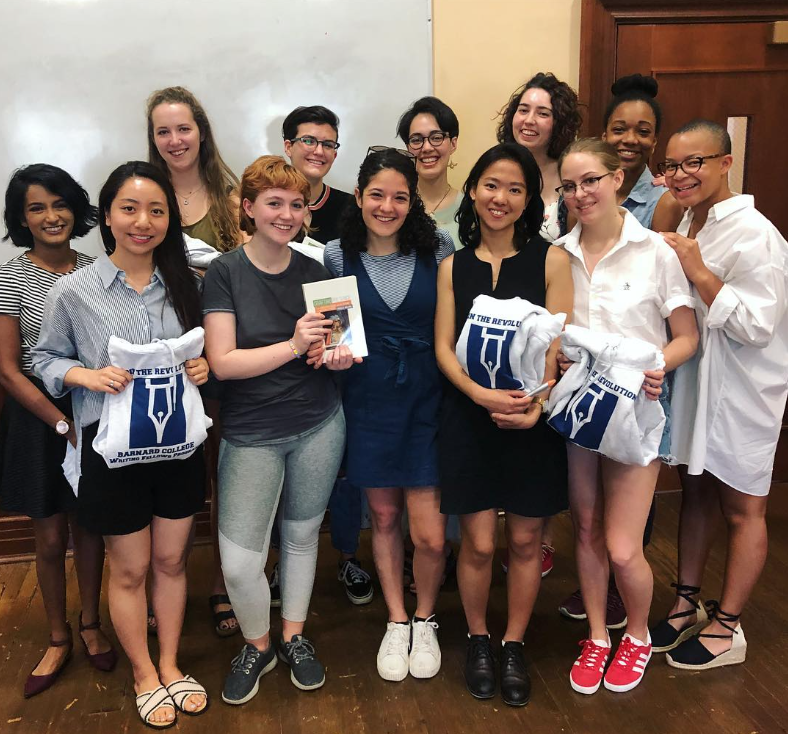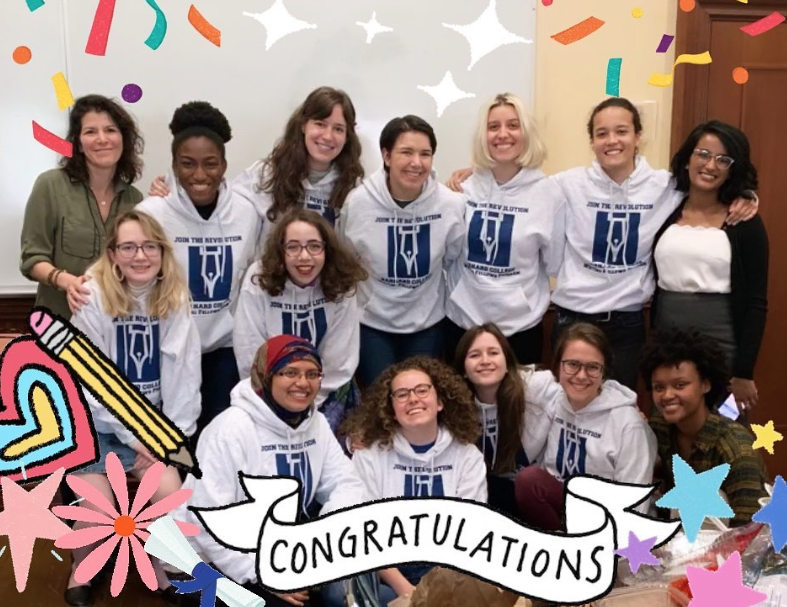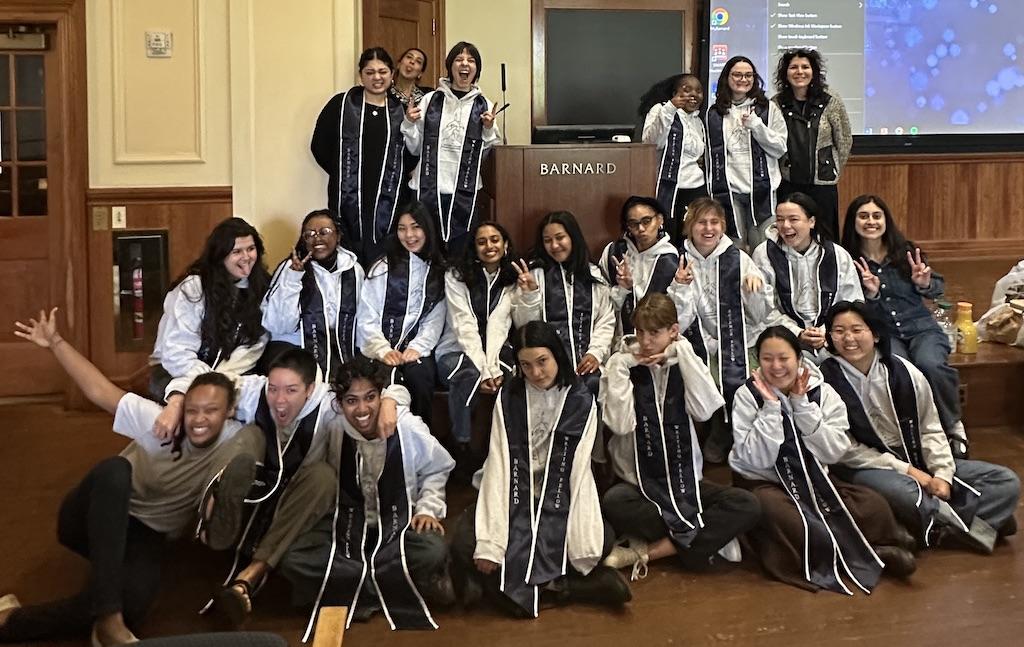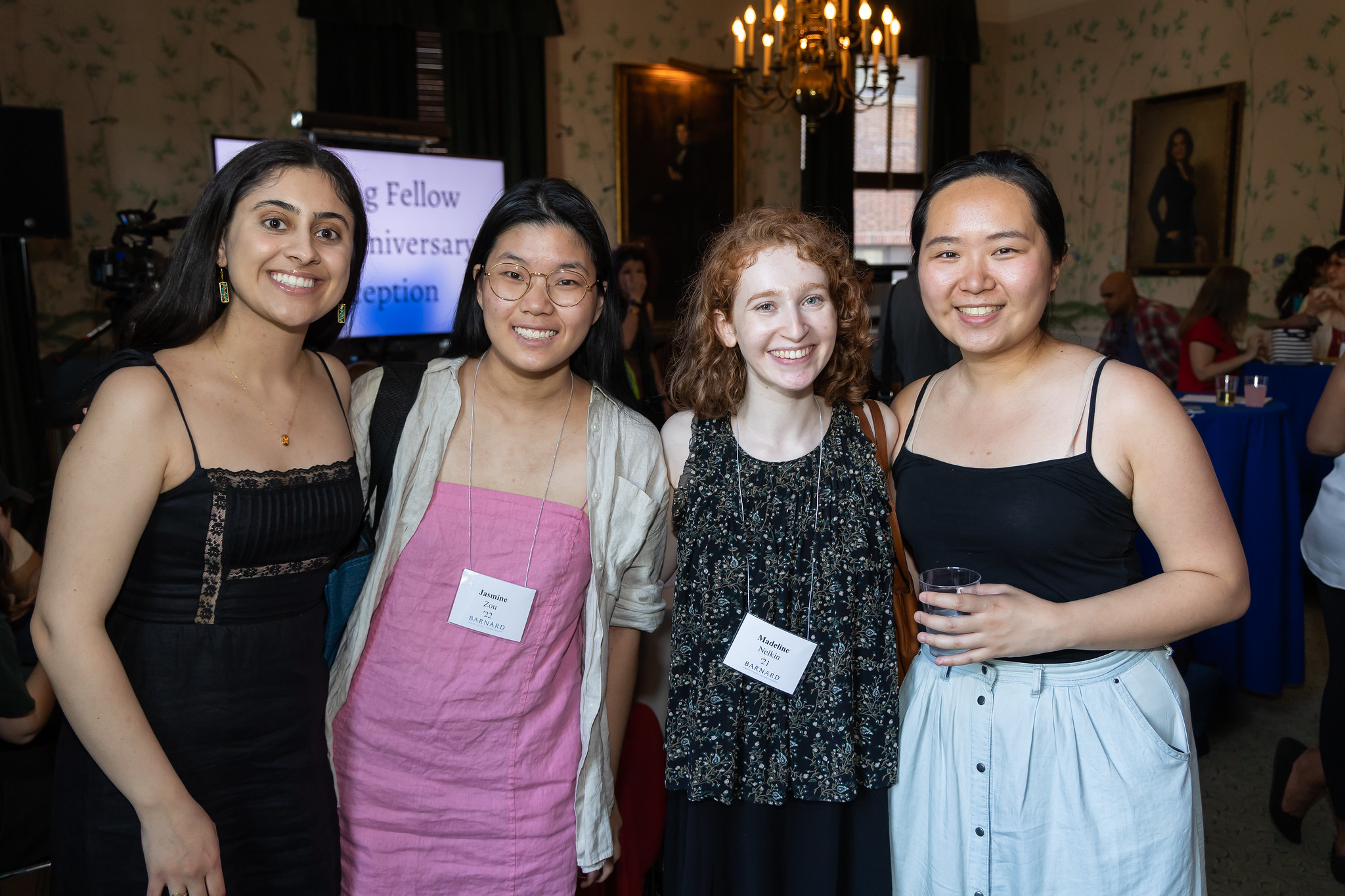As a liberal arts college, Barnard has a long-standing commitment to graduating students who can write as critically as they have learned to think and read. At this year’s Reunion — three decades after the College’s Writing Project (launched in 1990) became the Writing Fellows Program in 1992 — award-winning authors, inaugural fellows, alumnae, and other members of the community came together to celebrate the program’s success.
From the start, the Writing Fellows sought to help students across curricula as they developed and strengthened their creative visions and voices as writers. Nancy Kline Piore ’64, then a senior lecturer in Barnard’s English Department and the program’s inaugural director, decided to make sure this was happening on campus.
“At the beginning of the 1990s, the program was a startup, an experiment, an exhilaration!” reflected Piore, the inaugural director, during the 30th anniversary celebration.
Very quickly, the program focused on writing as a process distinct from product. In individual peer-to-peer consultations, Writing Fellows help to alleviate some of the stress that students experience when drafting a paper. Fellows take a discursive approach to each session as they encourage students to call on prior knowledge while revising their writing.
“Writing Fellows listen and question and believe that every student has something to express that is deserving of an audience and can be realized through peer collaboration,” said Pamela Cobrin, the Center’s current director of the writing and speaking programs. “Within the hierarchical structure of academia, this is still a radical idea and one that has been embraced by Barnard.”
As Kate Gester ’12 wrote in the Columbia Spectator in her senior year: “We become intermediaries for our peers. We are educators who can critique work, but we are also peers who will listen and empathize as a friend would. In this way, it is a safe space, one where students’ ideas and frustrations can be vented and considered.”
Hear from Barnard's Writing Fellows as they talk about the program in the video above.
“In my 21 years working with the Writing Fellows Program — 15 years as the director — [it] has always been about responding and advocating,” said Cobrin, who is also co-director of the First-Year Seminar Program. “Responding to the needs of students and advocating for student voices in both their writing and, by extension, the larger Barnard community.”
In Celebration
On June 2, the College celebrated 30 years of successful mentorship with alumnae, Writing Fellows, and current — and former — directors of the program. The event, which felt like a family affair, honored Erica Mann Jong ’63, for whom the Erica Mann Jong ’63 Writing Center is named. Jong created a $100,000 Writing Fellows Fund in 1997 in order to help renovate the writing room in Reid Hall and pay the stipends of several Writing Fellows every year.
Novelist and Pulitzer Prize-winning journalist Anna Quindlen ’74 has also supported the Fellows program, with two large gifts over the years — most recently, $100,000 to help fund the Creative Writing Fellows and Speaking Fellows programming. At the event, she spoke on what made the program special for her: “Building confidence is the linchpin of the Writing Fellows program,” said Quindlen. “[It] has helped thousands of students here at Barnard feel in charge, to sharpen their paragraphs and their point of view in a way they will carry forward. It’s why I will continue to support it in the years to come — confidence and community have not only made me a writer, they’ve made me a person.”
As the program’s coordinator for the past five years, DaMonique Ballou ’17 has witnessed Fellows explore and develop their own written process, even when it meant reimagining their understanding of writing. During The Writer’s Process — a two-section training course taught by Cobrin and Alexandra Watson, associate director of the Writing Program — Fellows contemplate the process of writing, knowledge making, and the purpose of asking questions.
“Through asking questions, Fellows practice how to be curious — and it is a practice,” said Ballou. “Every moment I’ve spent as the coordinator has been a consistent reminder to be curious. In 30- to 60-minute conferences, Writing Fellows make space for students to discover elements of their voice and ideas [when] there seems to be no time for [them], especially at a place as demanding of [one’s] time as Barnard.”
Building confidence is the linchpin of the Writing Fellows program.
Lecturer of English and associate director of First-Year Writing Cecelia Lie-Spahn ’11, who went from being a Writing Fellow in 2009 to being the coordinator of the Writing and Speaking Programs from 2011 to 2014, also attended the Reunion. “Fellowing means so much more than reading and commenting on papers. It is really a listening and naming skill — one that first helped me uncover ideas I didn’t know I had and make connections that transformed the way I think,” said Lie-Spahn. “In this way, the program acts as a kind of engine for self-discovery at Barnard: I fellow another student, who experiences a shift, who then brings that experience to their writing and their classes. It is a deeply collaborative, collective movement.”
The Evolution of the Writing Fellows Program
Part of what has made the Writing Fellows Program so successful over three decades is that the Fellows work closely with their peers across the curriculum from day one. Piore understood that the Fellows would sharpen their communication and writing skills — whether they were studying biology and writing about labs or the changing faces of art history — just as much as the peers with whom they worked.
Looking back on her time as a Fellow, from 2008 to 2011, Callie Wilson ’11 — who was an anthropology major and is now Deputy Attorney General within the California Attorney General’s Office — remembered how much she learned then that she still carries with her today.
“Being a Writing Fellow gave me the excellent communication skills and confidence that helped me chart my career trajectory from Barnard to today. It helped me get my first job working with a New York State Assembly member, which set me on the path to law school and public service,” said Wilson. “I still think about the lessons I learned from Pam Cobrin and my brilliant peers: to ask questions, to pursue clarity, and to honor first every writer’s and situation’s strengths instead of focusing on their weaknesses.”
Transfer student and English major Hannah Ehrenberg ’13, who went on to graduate school at Teachers College, described her time as a Writing Fellow as having a practical impact on her writing process in terms of planning, structuring, and revising. “I am a better reader, collaborator, problem-solver, and listener,” said Ehrenberg, who works for an organization that does research and training for progressive organizations and campaigns. “I also learned a great deal from working with my peers — I really valued the opportunity to learn more about the unique ways that each person thinks and writes.”
When Ashna Shome ’18, M.D., became the Science Writing Fellows’ first science coordinator in 2018, she was a recent graduate in neuroscience and behavior who wanted the program to generate peer-to-peer academic support for students in the sciences, both for the Fellows and for the other students with whom they worked. She also wanted to push students to think more deeply about science communication and to feel comfortable when writing in a scientific voice.
“I believe that students should be able to communicate their scientific work in a way that is appropriate to different audiences, including their peers in the field and to laypeople,” said Shome, who minored in art history. “Now, as a newly minted doctor, I see the importance of being able to communicate scientific information as even more crucial, and I hope my work helped students to think more deeply about these questions.”
With this new science addition, Fellows set out to assist their peers at every stage of the writing process, including brainstorming, outlining, and revising; writing lab reports, review papers, and original research papers; and for any writing or reading assignments for classes and labs, personal statements, and research applications.
Watch a video about the Science Writing Fellows and read the article.
As Barnard students became increasingly interested in studying the sciences, the Science Writing Fellows Program also grew in popularity. In 2021, about 130 students applied to be Writing Fellows. Thirty-three were accepted, and 12 of those were designated Science Writing Fellows.
“Fellows teach me to believe that a conversation about ideas can lead to a finished paper or, in my case, a task,” said Ballou. “They teach me that even when life seems demanding, your voice is worth listening to and your ideas worth exploring.”
Grateful that the Fellows are her peers, Ruya Tazebay ’24 said she liked receiving guidance from “somebody who’s taken the same course, likely with the same professors, and perhaps even written the same reports.”
Forward Motion for Fellows
Newly launched this spring was the Creative Writing Fellows Program, which supports students taking creative writing classes, applying to take creative writing classes, or writing creative works outside of classes.
Creative Writing Fellows apply writing pedagogy to creative writing practices to explore how readers interact with creative forms differently than with academic work.
“I have learned more than I can accurately express about teaching, learning, collectivity, and pedagogic generosity of spirit and mind from Writing Fellows,” said Cobrin. “At the same time, I know that the program is always evolving.”
“[Being a Creative Writing Fellow] means paying less attention to what I know to be the structure of writing and more attention to what the sentences themselves are edging toward,” said Tapiwa Gambura ’24.
Watson, who founded the program, collaborates with the Creative Writing Fellows to work on “statements of meaning,” in which students observe what stands out about their writing. “That mirroring process of hearing someone else say, ‘This is what I think the piece is about, this is what I think the piece is saying,’ is so instructive,” said Watson.
The Writing Fellows Program regularly hosts workshops and lectures for students to engage with writing pedagogy across various academic disciplines and settings. The program’s annual Susan S. Ratner ’86 Pedagogy Series hosts scholars who share insights about teaching philosophies and curriculum building. Past speakers include Carl Hart (Columbia University), Alfred Guy (Yale University), Elizabeth Pryor (Smith College), Jalisha Jenifer (Barnard College), and most recently, Laura Gonzalez (University of Florida), whose talk in February, “Pedagogy of Translation,” considered what pedagogic lessons faculty can learn from multilingual students.
